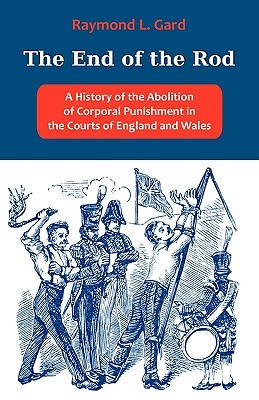
- We will send in 10–14 business days.
- Author: Raymond L Gard
- Publisher: Brown Walker Press (FL)
- ISBN-10: 1599425181
- ISBN-13: 9781599425184
- Format: 14 x 21.6 x 0.8 cm, minkšti viršeliai
- Language: English
- SAVE -10% with code: EXTRA
Reviews
Description
The End of the Rod describes the tortuous steps that led to the abolition of corporal punishment as a sentence of the courts in England and Wales in 1948. It seeks to give voice to the key actors in the process: civil servants and politicians, along with those actually inflicting and experiencing that corporal punishment. It uses a variety of archival material and original sources to achieve this. The account begins in the late nineteenth century and traces debates, negotiations, and manoeuvring from then to the legislation of 1948. The work then looks at the consequences of that abolition and offers an explanation as to why the changes it describes may have occurred.
EXTRA 10 % discount with code: EXTRA
The promotion ends in 22d.08:18:09
The discount code is valid when purchasing from 10 €. Discounts do not stack.
- Author: Raymond L Gard
- Publisher: Brown Walker Press (FL)
- ISBN-10: 1599425181
- ISBN-13: 9781599425184
- Format: 14 x 21.6 x 0.8 cm, minkšti viršeliai
- Language: English English
The End of the Rod describes the tortuous steps that led to the abolition of corporal punishment as a sentence of the courts in England and Wales in 1948. It seeks to give voice to the key actors in the process: civil servants and politicians, along with those actually inflicting and experiencing that corporal punishment. It uses a variety of archival material and original sources to achieve this. The account begins in the late nineteenth century and traces debates, negotiations, and manoeuvring from then to the legislation of 1948. The work then looks at the consequences of that abolition and offers an explanation as to why the changes it describes may have occurred.


Reviews